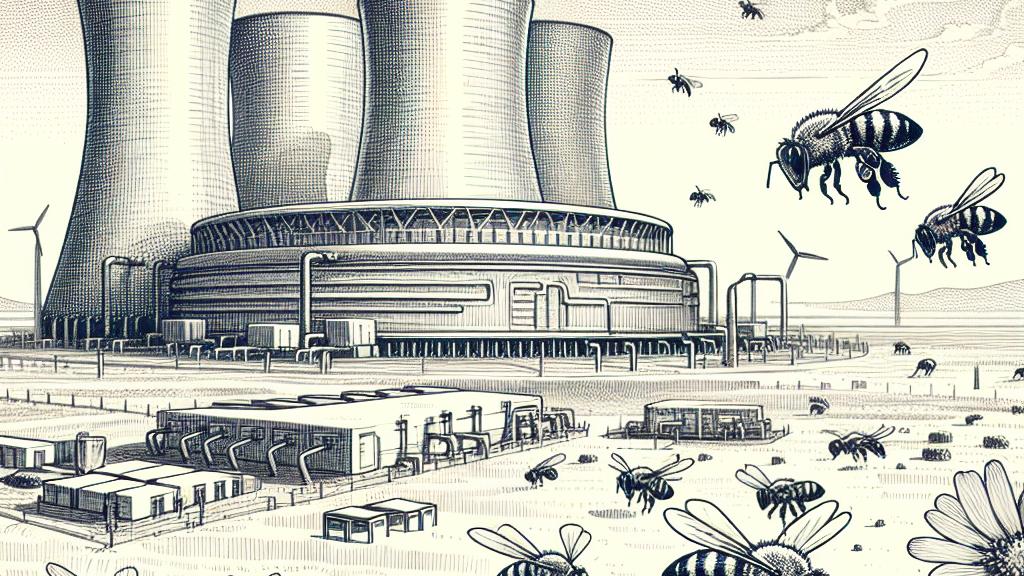Meta's Nuclear-Powered AI Data Center Plan Halted by Rare Bees
Overview
- Meta's groundbreaking nuclear data center project faces an unexpected standstill due to rare bees found at the construction site.
- CEO Mark Zuckerberg openly discussed the intertwining challenges of environmental protection and regulatory compliance.
- The pivotal role of bees highlights the urgent need for their conservation amidst rapid technological advancements.

Unveiling the Project's Ambitions
In the heart of the United States, Meta was poised to launch an innovative nuclear-powered AI data center, a venture that promised to set new standards for sustainable energy in the tech industry. This ambitious initiative aimed to not only harness nuclear energy but also to significantly reduce carbon emissions associated with data centers. However, the excitement surrounding this project took a sharp turn when rare bee species were discovered in the area designated for construction. During a recent all-hands meeting, CEO Mark Zuckerberg candidly reflected on how the unexpected presence of these endangered pollinators played a crucial role in the decision to pause the project. This situation stresses the importance of recognizing and respecting the delicate balance between technological progress and environmental sustainability.
The Importance of Bees in Our Ecosystem
The presence of these rare bees brings attention to a much larger conversation about biodiversity and environmental conservation. Bees are essential for pollination, which is vital for the growth of many plants and crops, including critical staples such as coffee, which fuels morning routines worldwide, and apples, a beloved fruit enjoyed by many. A significant study conducted in 2024 brought alarming statistics to light, revealing that around 60% of agricultural crops globally face threats from declining pollinator populations. Protecting bee habitats is thus not merely an environmental obligation; it is crucial for ensuring food security and the overall well-being of our ecosystems. Furthermore, with challenges like climate change, agricultural pesticides, and habitat destruction looming, the prioritization of bee conservation within Meta's framework resonates strongly with global movements emphasizing sustainable practices.
Navigating Future Challenges and Opportunities
As Meta navigates the complex regulatory landscape governing nuclear energy in the U.S., it finds itself in direct competition with nations like China, which are rapidly advancing their nuclear programs. This scenario not only raises questions about America’s commitment to energy innovation but also emphasizes the delicate balance between development and conservation. Looking toward the future, Meta must thoughtfully reassess its strategies to ensure that ecological responsibilities are harmoniously integrated with technological growth. The ongoing situation serves as a powerful reminder; as we push the boundaries of innovation, we must also protect and cherish the delicate ecosystems that sustain us. Ultimately, pursuing groundbreaking technological advancements and ensuring the protection of our natural world can and should go hand in hand, paving the way for a more sustainable and prosperous future.

Loading...